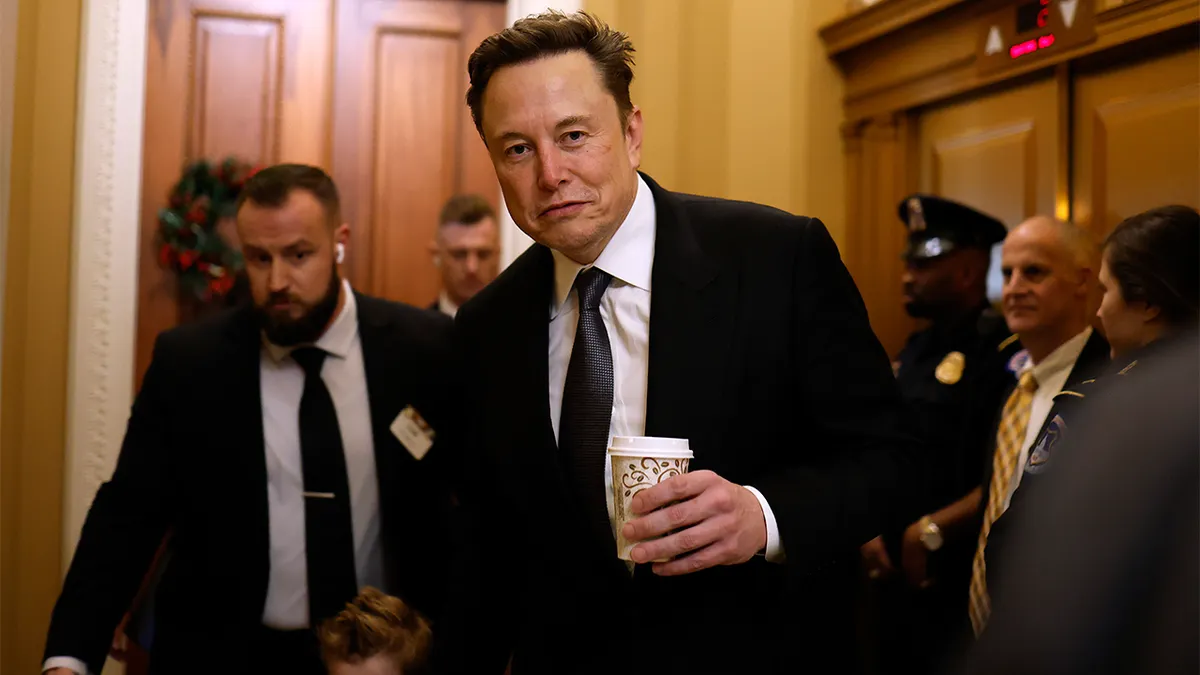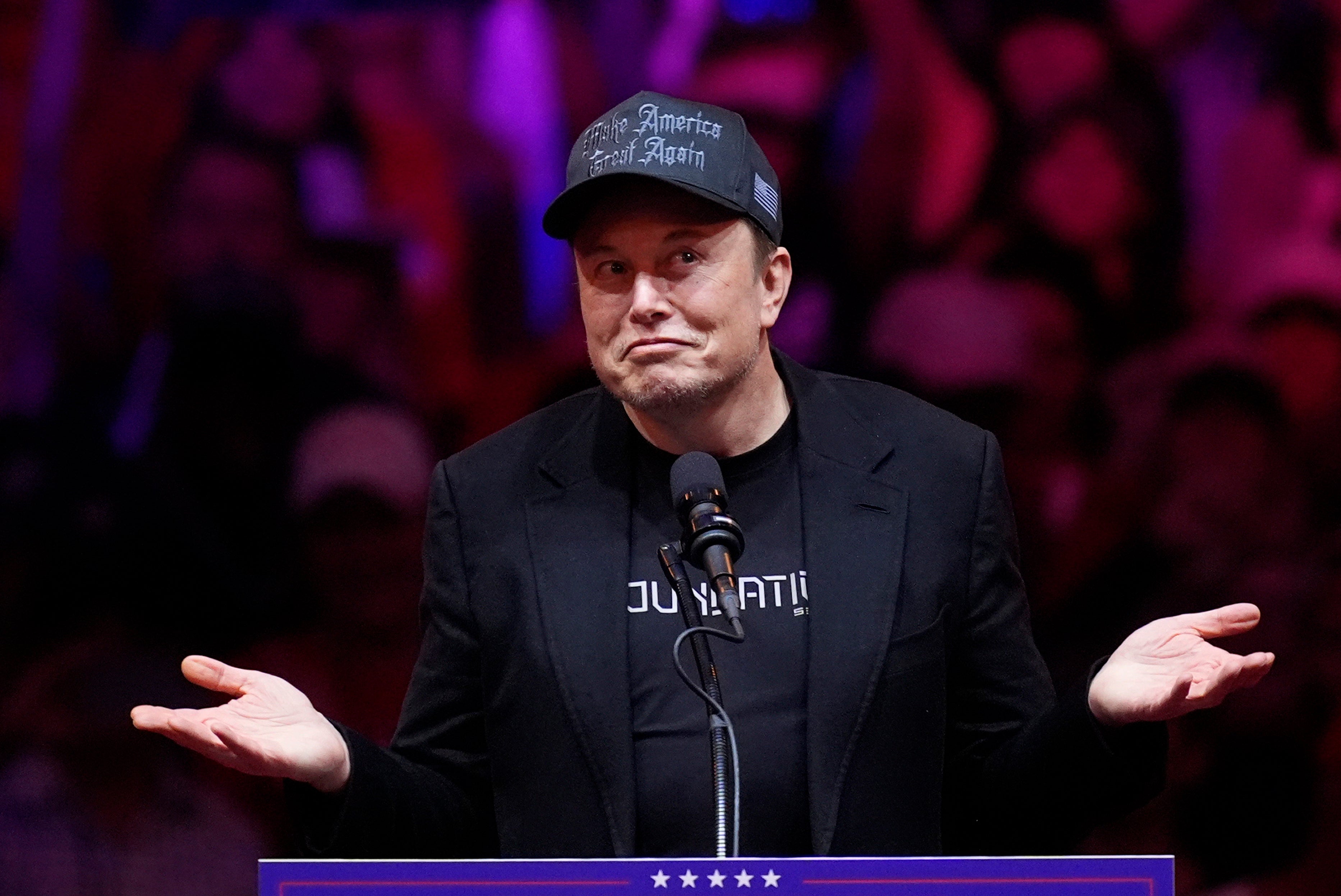Elon Musk On Entitlements: Fraud Concerns & Potential Cuts - Latest News
Is America's financial future at risk, or is it merely a question of trimming the fat? Elon Musk, a prominent figure in both the tech world and political circles, has ignited a firestorm of debate by focusing on the staggering costs and alleged inefficiencies within the U.S. entitlement programs. His pronouncements have sparked both concern and intrigue, raising critical questions about the sustainability of vital social safety nets.
The narrative surrounding Musks involvement is multifaceted. On multiple occasions, notably on Mondays, the billionaire has emphasized the sheer magnitude of federal spending on entitlement programs. This has been a consistent theme, reinforcing his position as an advocate for downsizing the government, a stance that has garnered considerable attention. Coupled with this is Musk's assertion regarding rampant fraud within the U.S. system, particularly concerning Social Security. He's posited that billions of dollars are misused annually, a claim that has prompted scrutiny and calls for reform. Furthermore, his involvement with the Treasury Department's systems, euphemistically referred to as "Doge's access," has triggered anxieties about the security of personal data and the integrity of payment processes.
The core of the debate pivots on the efficacy of these entitlement programs. While Musk aims to curtail fraud, the complexities of implementing such measures are undeniable. Legal hurdles and political posturing remain significant roadblocks. Meanwhile, a chorus of critics is voicing apprehension about the potential impact on beneficiaries. They point to looming funding shortfalls within Social Security, projected as early as 2035, as a reason for caution. The conversation is not merely about numbers; it's about the lives and livelihoods of millions who depend on these programs.
- Christie Carano The Rising Star In Sports And Entertainment
- Harmoni Everett The Rising Star Redefining Music With Her Unique Vibes
| Category | Details |
|---|---|
| Full Name | Elon Reeve Musk |
| Date of Birth | June 28, 1971 |
| Place of Birth | Pretoria, South Africa |
| Citizenship | South African, Canadian, American |
| Education | University of Pennsylvania (B.A. in Physics, B.A. in Economics) |
| Profession | Entrepreneur, Business Magnate |
| Known For | Co-founder of PayPal, Founder, CEO, and CTO of SpaceX; CEO and Product Architect of Tesla, Inc.; Founder of The Boring Company; Co-founder of Neuralink and OpenAI. |
| Political Affiliation | Independent |
| Net Worth | Estimated at $218 billion (as of April 2024, according to Forbes) |
| Major Business Ventures | SpaceX (Space Exploration Technologies Corp.): Designing, manufacturing, and launching advanced rockets and spacecraft. Tesla, Inc.: Designing, manufacturing, and selling electric vehicles, battery energy storage from home to grid-scale, solar panels, and solar roof tiles. The Boring Company: Infrastructure and tunnel construction company. |
| Philanthropic Activities | Musk has supported various charitable causes, including education, clean energy, and scientific research. He has signed The Giving Pledge, committing to donate the majority of his wealth to philanthropy. |
| Official Website | Tesla Official Website |
Musk's concerns are not isolated incidents. He has consistently warned that without significant cuts to federal spending, the United States risks economic turmoil, even potential bankruptcy, with deficits soaring. His approach is rooted in a conservative fiscal philosophy, targeting what he perceives as wasteful spending in order to safeguard the nations financial well-being. The "American Association of Retired Republicans" supports his cause.
The scale of the alleged fraud is a point of contention. While Musk's estimates are substantial, exceeding what is generally believed to exist, the issue is undeniably present. The Social Security Administration's internal watchdog has reported instances of improper payments, highlighting the need for enhanced oversight and accountability within these programs. An internal watchdog revealed $71.8 billion in improper payments that occurred between 2015.
The economic ramifications of entitlement spending are undeniable. Musk repeatedly emphasizes the strain these programs place on the U.S. economy, arguing that they are a primary driver of the national debt. With annual expenditures on Medicare, Medicaid, and Social Security approaching $700 billion, the magnitude of the financial commitment is clear. This has led Musk to advocate for reductions in these expenditures.
- Spencer Gooding The Rising Star You Need To Know About
- Tropicana Field Photos Your Ultimate Guide To Capturing The Magic
Musk's assertions extend beyond mere financial figures. He contends that a significant portion of entitlement payments, potentially exceeding $100 billion annually, are being disbursed without proper verification. This, he claims, is a symptom of systemic failures in government oversight. The implications of these allegations are profound. If a considerable percentage of these payments are indeed fraudulent, it raises serious questions about the integrity of the entire system.
Musks involvement with the Treasury Department, and by extension with Social Security payment systems, has drawn considerable attention. His access to systems managing trillions of dollars annually has sparked questions about data security and the potential for misuse. While Musk views his efforts as a necessary step to address fraud, critics remain wary.
Musk's actions have triggered discussions about his intentions and the potential consequences. His access to and pronouncements about government systems have not gone unnoticed, nor have the potential ramifications of his proposals. His statements have caused considerable concern, particularly the prospect of potential cuts to Social Security, Medicare, and Medicaid. Such a move could have serious implications for millions of Americans who depend on these programs. The focus is on waste and fraud, hinting at the possible elimination of hundreds of billions in federal spending.
In an interview with Fox Business, Musk explicitly identified waste in entitlement programs, such as Social Security and Medicare, as the big one to eliminate. This statement underscores his prioritization of fiscal austerity and suggests a commitment to significant reforms in these areas. It also underscores his concern regarding the state of the economy. The situation has also caught the eye of political observers. According to reports, Donald Trump has voiced his intent to appoint the billionaire to oversee a new government efficiency commission, with a focus on expenditure reduction.
The broader economic context is also a major factor. International Monetary Fund (IMF) chief Kristalina Georgieva has characterized the U.S. debt load as mind-boggling. These remarks underscore the urgency of the situation and the need for prudent financial management. Musk has suggested that federal spending is unsustainable, citing massive deficits. In a March 2025 interview, he made reference to the $4.5 trillion U.S. Entitlement Machine, highlighting the scale of the problem, according to him.
Musks involvement in these discussions is critical, especially considering his close ties to influential figures. His words carry significant weight and can shape the direction of policy debates. His focus on entitlement spending represents a substantial challenge to the status quo, aiming to change the way these programs are funded and administered. His actions also come as President Donald Trump is seeking to curb government spending. According to sources, Musk's words on the economy matter given that Mr. Trump has said he would appoint the billionaire to oversee a new government efficiency commission focused on cutting spending if the.
In summary, the ongoing debate surrounding Elon Musks assessment of entitlement programs brings to light an intricate web of economic, political, and social considerations. It forces us to confront difficult questions about fiscal responsibility, program sustainability, and the essential role of government in safeguarding its citizens' welfare. While the solutions are far from clear, the discussion spurred by Musk is certainly of great importance.
Article Recommendations
- Soccer Player Kicking Ball The Art And Science Behind The Perfect Strike
- Molly Tarlov The Rising Star In The Spotlight



Detail Author:
- Name : Adela Bailey
- Username : nwintheiser
- Email : sedrick.wolf@carter.org
- Birthdate : 2004-04-05
- Address : 55003 Renner Streets Andersontown, WV 13573-8525
- Phone : 870.287.9328
- Company : Abbott-Stanton
- Job : Alteration Tailor
- Bio : Omnis quam a et sequi necessitatibus necessitatibus harum eius. Sunt fugit vitae et assumenda. Quibusdam autem est natus nulla quod assumenda.
Socials
tiktok:
- url : https://tiktok.com/@ewell.dickens
- username : ewell.dickens
- bio : Minus itaque voluptatem ullam laborum quas laboriosam ut.
- followers : 3888
- following : 1771
facebook:
- url : https://facebook.com/edickens
- username : edickens
- bio : Eos quo vero et sequi. Ut enim ullam possimus ut ducimus asperiores dolorem.
- followers : 248
- following : 537
instagram:
- url : https://instagram.com/ewell.dickens
- username : ewell.dickens
- bio : Non cum ut iste fugit dolore et est ut. Et ut ducimus qui sunt fugit labore incidunt.
- followers : 3421
- following : 2914
linkedin:
- url : https://linkedin.com/in/dickens1993
- username : dickens1993
- bio : Qui occaecati aut sunt voluptatem.
- followers : 1007
- following : 2779
twitter:
- url : https://twitter.com/dickense
- username : dickense
- bio : Quia reiciendis quia et est. Enim vel consectetur tenetur qui rerum omnis aut. Dolore provident aspernatur illo consequuntur.
- followers : 6182
- following : 2393